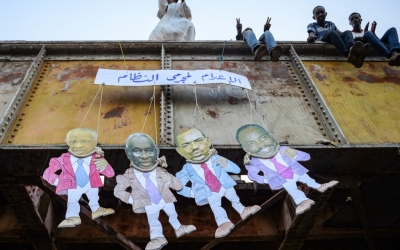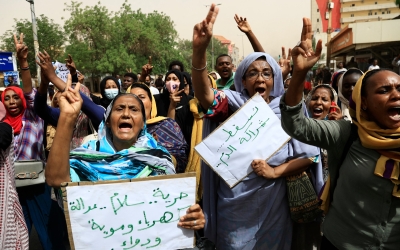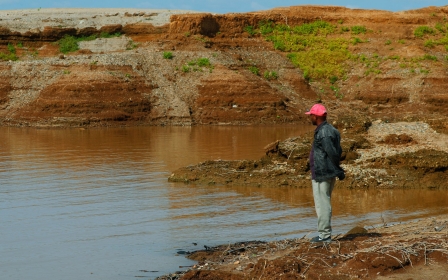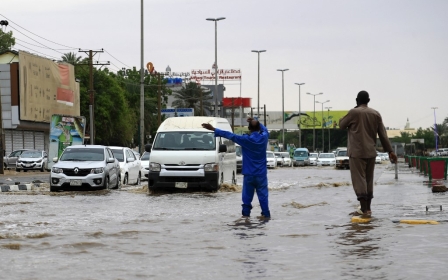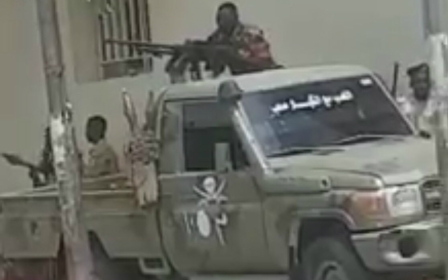Sudan says thwarted coup attempt linked to Bashir regime
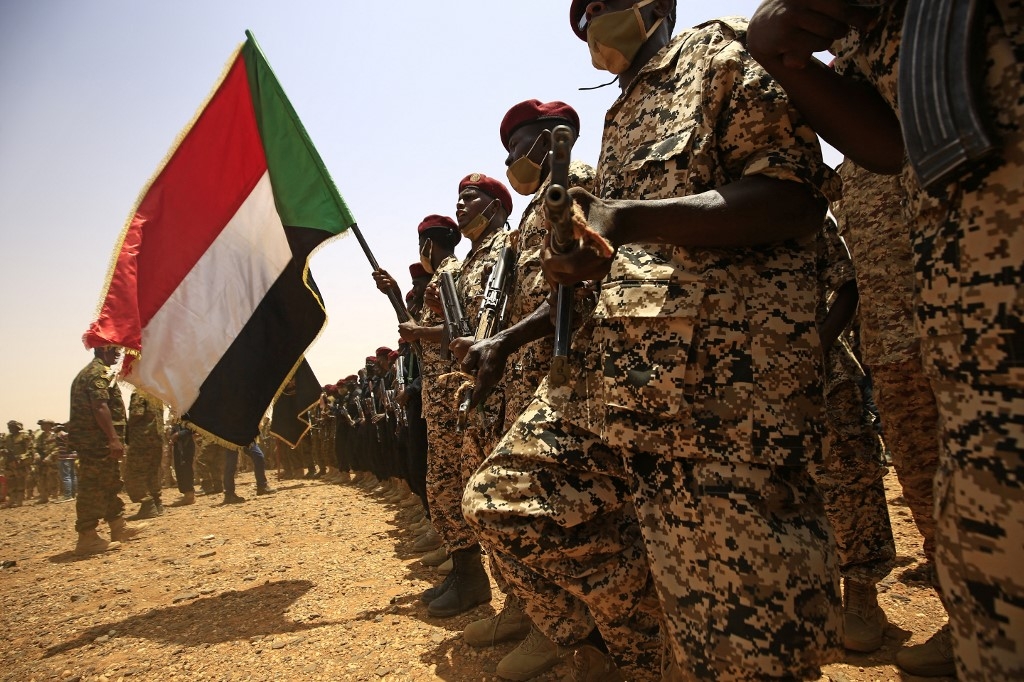
Residents of Omdurman, the twin city of Sudan’s capital Khartoum, woke up early on Tuesday to the sounds of gunfire near a military base in the city’s north.
Some witnesses said that they heard an exchange of sporadic gunfire at around 3am local time that lasted for three hours.
Others, like Ahmed Hassan, a 32-year-old Sudanese from al-Garafa neighbourhood, said that they saw tanks rolling out from the nearby tank unit base.
“We saw dozens of tanks moving from the tank force unit near our neighbourhood. We first heard light gunfire, then when we came out of our homes in the early morning we saw the tanks moving towards the bridge that linked Omdurman with the city of Khartoum,” Hassan told Middle East Eye.
A while later, a short news flash on Sudanese TV channels announced that the Sudanese army had foiled a military coup attempt and that details would follow.
Following hours of speculation, the government said that the coup had been contained and that those involved had been arrested.
However, the coup attempt did not come as a total surprise for the Sudanese people, as reports and rumours had already been circulating on social media discussing movements by Islamists and associates of deposed longtime ruler Omar al-Bashir and the deep state within the army to oust civilian leaders.
Prime Minister Abdullah Hamdok on Tuesday accused individuals connected to the old regime of being behind the coup attempt.
In his address to the nation, Hamdok stressed that associates of the deep state from inside and outside the military were involved.
"What happened is an orchestrated coup by factions inside and outside the armed forces and this is an extension of the attempts by remnants since the fall of the former regime to abort the civilian democratic transition," Hamdok said in a televised statement.
"This attempt was preceded by extensive preparations represented by lawlessness in the cities and the exploitation of the situation in the east of the country, attempts to close national roads and ports and block oil production."
Meanwhile, the Sudanese Armed Forces (SAF) spokesperson confirmed in a statement that the military has arrested 21 officers suspected of being involved in the coup and recaptured some military sites that were controlled by collaborators.
“Investigations by military intelligence into those arrested and the tracking of other potential suspects are ongoing,” he said.
Dynamics of the coup
A military source claimed that people connected to the Muslim Brotherhood were behind the coup attempt, adding that the majority of the arrested officers are Islamists and belong to the tank force and the military paratrooper units.
'I can confirm now that the majority of those involved in this military coup have been arrested, while a wide arrest campaign is ongoing within the army in search of others'
- A military source
“The coup forces set out from the tank force unit until they reached the bridge of the White Nile in Omdurman, which links the city to Khartoum,” said the source, who requested anonymity because he is not authorised to talk to the media.
“The forces reached the bridge, which is located no more than five kilometres from the presidential palace in Khartoum.
“I can confirm now that the majority of those involved in this military coup have been arrested, while a wide arrest campaign is ongoing within the army in search of others.”
However, a leading member within the former ruling party has denied the accusations, saying that the transitional government wants to cover its own failures by fabricating incidents.
“We have nothing to do with the coup attempt and the transitional government, with its military and civilian components, wants to cover its failure in managing the transitional period with these fabricated stories,” the source, who asked for anonymity, told MEE.
“We see failure everywhere. There is widespread insecurity in the majority of the states, and tribal clashes everywhere because of the corrupt peace deal that was signed in Juba.
“We also see the deep economic deterioration and the surge in prices that has made life in Sudan impossible and all of this is because of the government’s weak performance on all fronts.”
Last year, the Sudanese government signed an agreement with an alliance of rebel groups from the Darfur, Blue Nile and Southern Kordofan regions to end 17 years of conflict.
Trouble in the east
Another cause of tension in the country for the past few days has been the general strike in Eastern Sudan by a number of tribes headed by local leader Mohamed al-Amin Tirik, who called for the strike to bring down the civilian rulers.
Protesters have closed the ports in Eastern Sudan, including Port Sudan and Suakin on the Red Sea, and blockaded the main road that links the ports with the rest of Sudan.
Speaking to MEE, Tirik called on the military leadership to take the side of the people and stop supporting what he called “the corrupt civilians”.
“We are against the track of Eastern Sudan in the Juba peace deal, which is unfair and has brought unknown people from Eastern Sudan in an attempt for them to rule the country without consulting the region’s grassroots,” he said.
“We consider this as marginalisation and humiliation to the Eastern Sudanese people, so we urge the military component [of the government] to intervene and put an end to the chaos and mismanagement by those civilians.”
The protesters have closed the ports and main roads in the cities of Port Sudan, Suakin, Sinkat and other areas in the Red Sea state, raising slogans against the transitional government and banners that read “Goodbye Khartoum”, in a call for the separation of Eastern Sudan from Sudan.
However, the resistance committee in the Red Sea state in a statement accused Tirik and his supporters of serving the interests of the old regime and using violence to impose their demands.
“The revolution has granted the right of freedom of expression, but what is emerging from Tirik and his supporters is clear violence, the use of force and tribalism in order to impose their politics,” the statement said.
“By doing so, they prove that they are loyal to the old regime and aim to pave the way for the coup.”
This article is available in French on Middle East Eye French edition.
Middle East Eye delivers independent and unrivalled coverage and analysis of the Middle East, North Africa and beyond. To learn more about republishing this content and the associated fees, please fill out this form. More about MEE can be found here.


